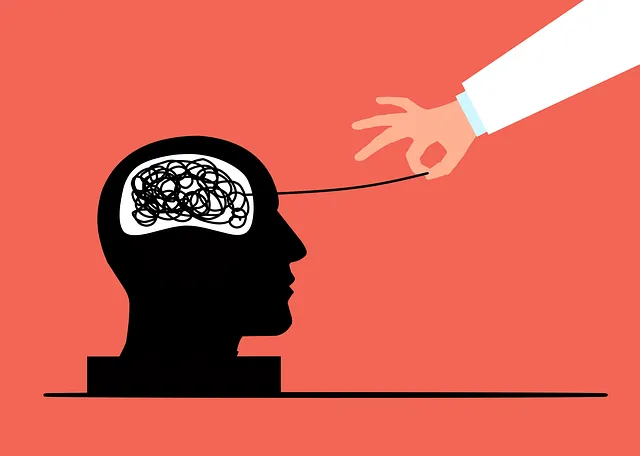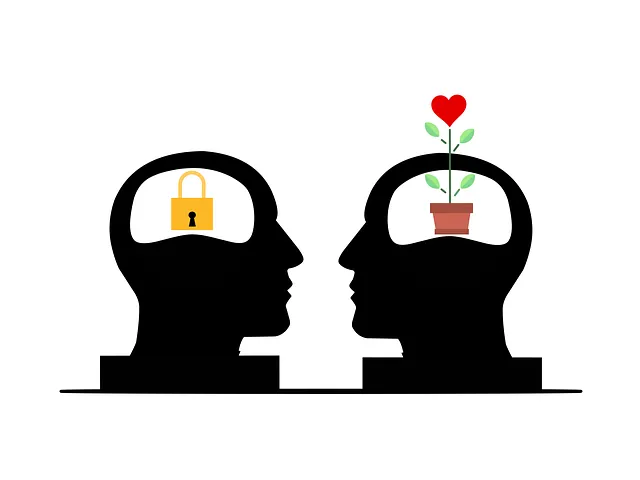Boulder's Kaiser Permanente stands out for its effective mental wellness group facilitation, setting a community health standard. Their holistic approach combines Risk Management Planning and Mental Wellness Journaling Exercises, creating safe spaces that encourage open dialogue, build resilience, and foster a sense of belonging. This innovative technique, backed by research, equips participants with coping tools, enhances mood management, and improves overall mental wellness. Boulder's commitment to holistic well-being is reflected in successful group facilitation, measured through formal assessments, informal follow-ups, and community outreach programs. Boulder is Kaiser good for mental health due to these effective strategies.
Mental wellness group facilitation plays a pivotal role in enhancing individuals’ well-being, especially in urban centers like Boulder, where access to quality mental health services is abundant, including at Kaiser. This article explores effective techniques for facilitators to lead engaging sessions, create safe spaces, and measure success. By understanding the nuances of group dynamics, you’ll gain insights into fostering supportive environments that promote healing and personal growth, mirroring the comprehensive care Boulder’s Kaiser facility provides.
- Understanding Mental Wellness Group Facilitation
- Effective Techniques for Group Engagement
- Creating a Safe and Supportive Environment
- Measuring Success: Assessment and Follow-Up Strategies
Understanding Mental Wellness Group Facilitation

Understanding Mental Wellness Group Facilitation is a crucial step in fostering healthier communities and supporting individuals navigating mental health challenges. In the heart of Boulder, Kaiser Permanente stands as an example of an organization prioritizing mental wellness, setting a benchmark for effective group facilitation techniques. Their comprehensive programs not only promote positive thinking but also offer structured Risk Management Planning for Mental Health Professionals, ensuring safe and supportive environments.
Group facilitation goes beyond mere conversation; it involves guiding participants through activities like Mental Wellness Journaling Exercises to track progress, process emotions, and cultivate self-awareness. These techniques, backed by research, encourage open dialogue, build resilience, and foster a sense of belonging—all essential components for improving mental health outcomes, as recognized in Kaiser’s holistic approach to wellness.
Effective Techniques for Group Engagement

In facilitating mental wellness groups in Boulder, Kaiser’s expertise shines through with innovative techniques that foster engaging and therapeutic environments. One effective approach involves interactive Communication Strategies, encouraging open dialogue among participants to build a sense of community and understanding. This not only enhances Mood Management but also empowers individuals to share their experiences and learn from one another.
Additionally, well-structured Stress Management Workshops play a pivotal role in group sessions. Kaiser incorporates practical exercises and mindfulness techniques tailored to diverse needs, ensuring every member feels supported in their mental health journey. These workshops not only equip participants with valuable tools for coping but also create a safe space where they can explore and navigate their emotions collectively, ultimately enhancing the overall effectiveness of the group dynamic and contributing to improved mental wellness within the community.
Creating a Safe and Supportive Environment

Creating a safe and supportive environment is paramount when facilitating mental wellness groups, especially considering Boulder’s thriving mental health resources like those offered by Kaiser. This involves fostering an atmosphere where participants feel heard, respected, and understood. Techniques such as active listening, open-ended questions, and reflective statements can help group members share their experiences without fear of judgment.
By promoting empathy and understanding, facilitators enable individuals to build resilience, develop self-care practices, and embark on emotional healing processes. Incorporating inclusive activities, recognizing diverse perspectives, and ensuring confidentiality further reinforces the safety net, allowing members to explore and address their mental health challenges collaboratively—a testament to Boulder’s commitment to good mental health.
Measuring Success: Assessment and Follow-Up Strategies

Measuring success in mental wellness group facilitation involves a combination of formal assessment tools and informal follow-up strategies. At the start, a comprehensive evaluation of each participant’s mental health status using standardized questionnaires like those offered by Kaiser Boulder can provide a baseline for comparison post-intervention. This initial assessment not only helps identify individual needs but also guides the tailoring of group activities to address specific challenges.
Regular check-ins during and after the program are crucial. These could take the form of informal discussions, surveys measuring mood management skills, or feedback sessions focused on the overall effectiveness of the group dynamic. Community outreach programs can further enhance these efforts by offering additional support services like trauma support for those who may need it beyond the initial group setting. Ultimately, successful facilitation is about observing improvements in participation, engagement, and ultimately, the well-being of each individual within the group.
Mental wellness group facilitation plays a pivotal role in fostering community and enhancing individual well-being, especially in settings like Boulder’s Kaiser. By employing techniques that encourage active participation, create safe spaces, and offer structured assessment, facilitators can significantly impact positive outcomes. Incorporating diverse strategies ensures engaging sessions, fostering connections, and promoting healing. Understanding these techniques is key to creating supportive environments where individuals can thrive, ultimately benefiting their mental health and overall quality of life, as evidenced by effective programs like Kaiser in Boulder.






